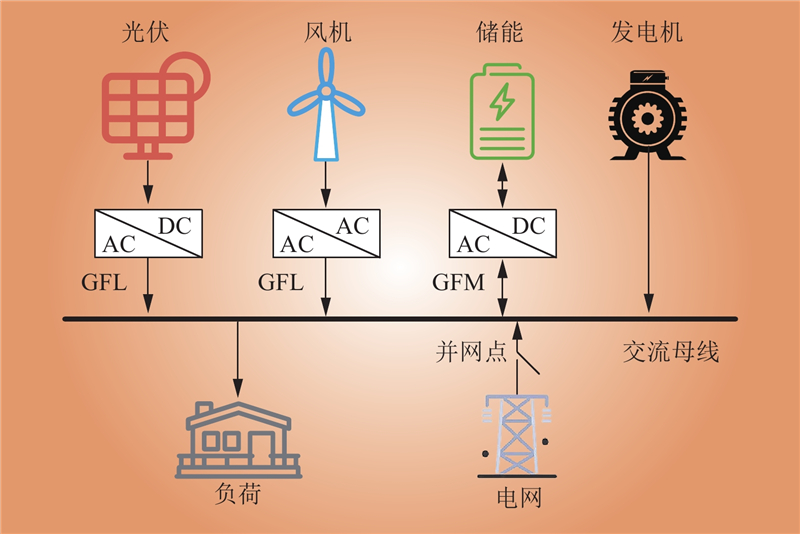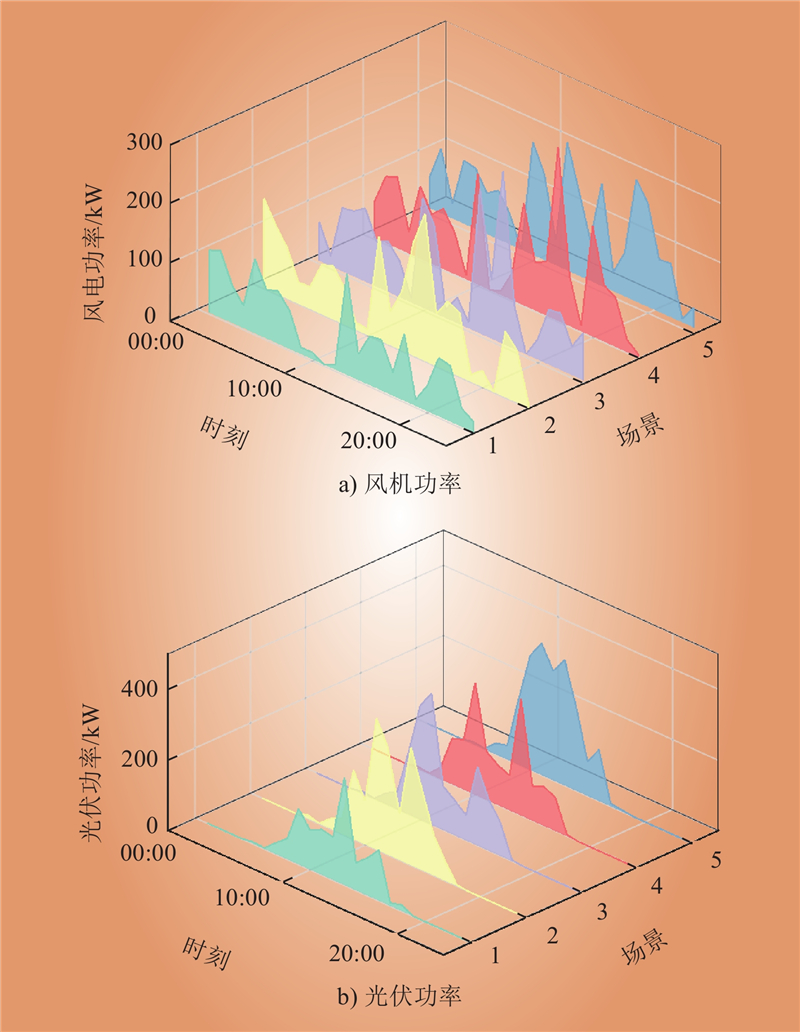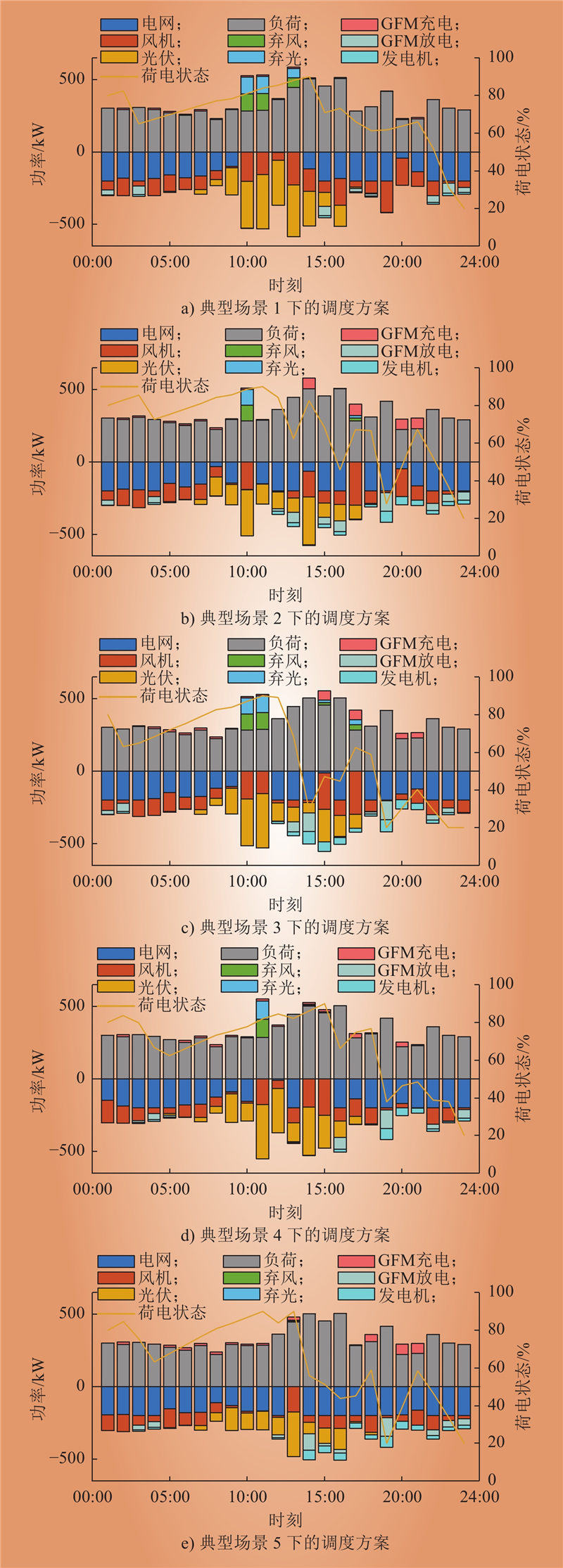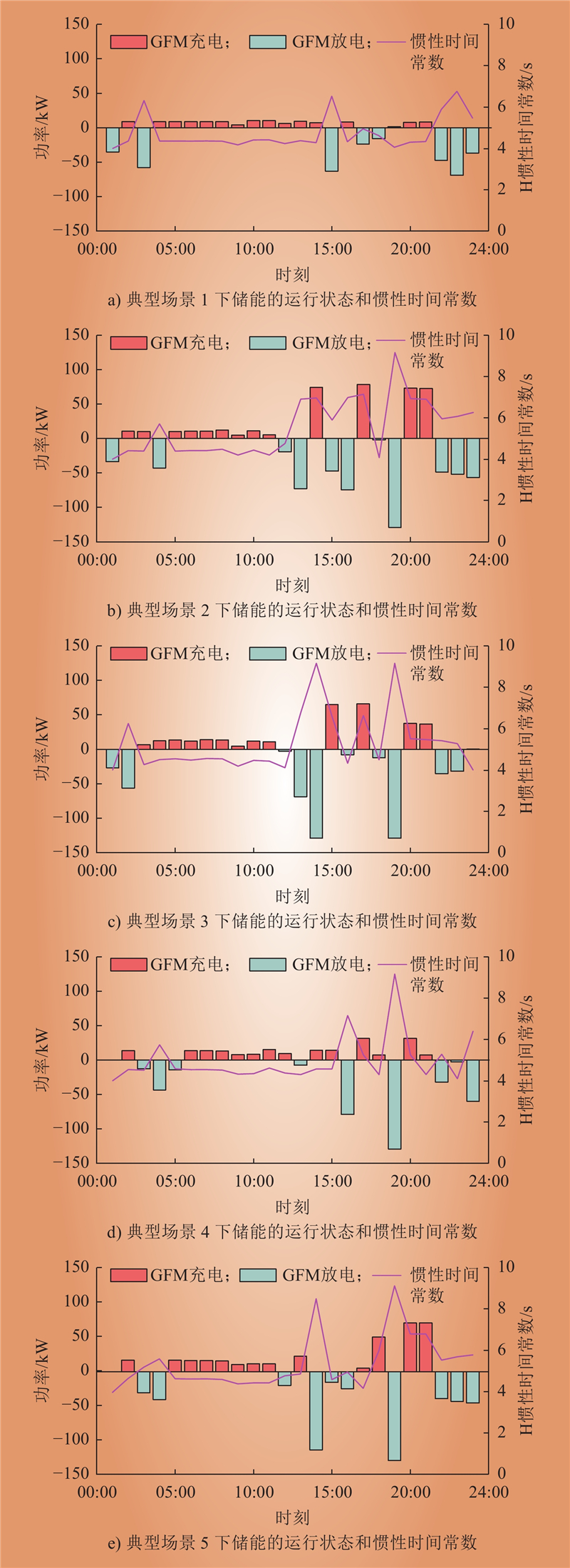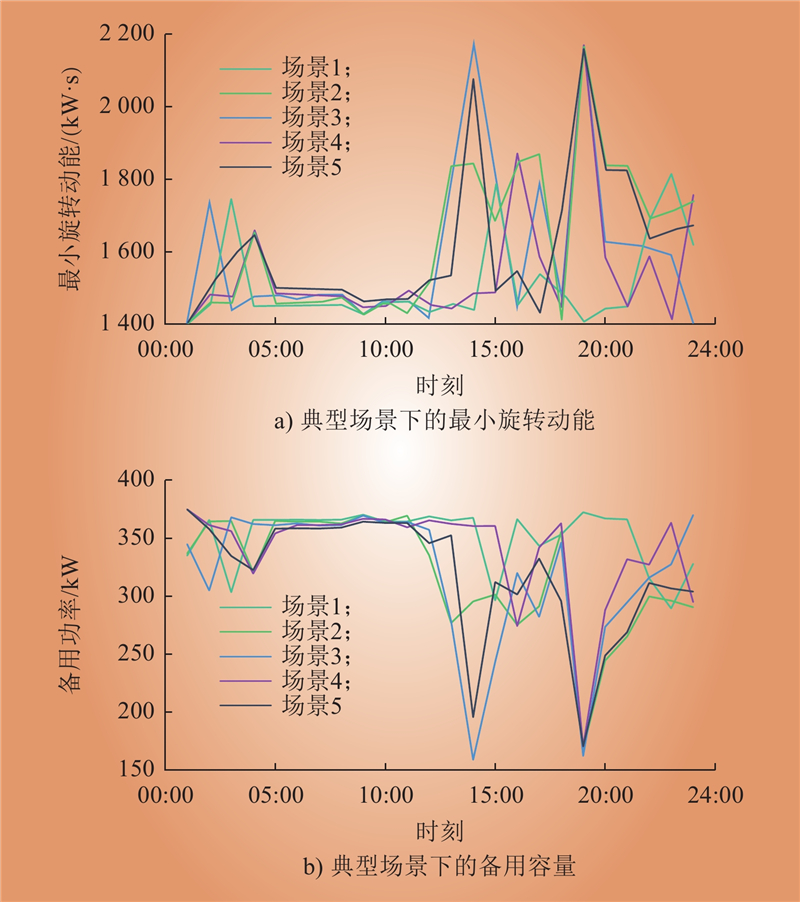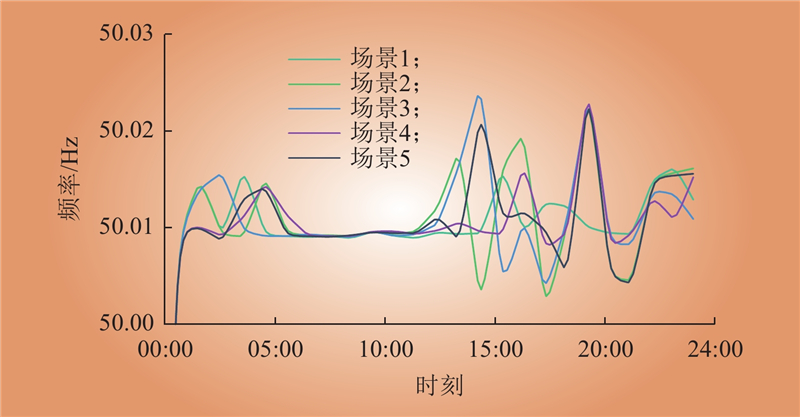| 1 |
林舜江, 冯祥勇, 梁炜焜, 等. 新能源电力系统不确定优化调度方法研究现状及展望[J]. 电力系统自动化, 2024, 48 (10): 20- 41.
|
|
LIN Shunjiang, FENG Xiangyong, LIANG Weikun, et al. Research status and prospect of uncertain optimal dispatch methods for renewable energy power systems[J]. Automation of Electric Power Systems, 2024, 48 (10): 20- 41.
|
| 2 |
王家武, 赵佃云, 刘长锋, 等. 基于目标级联法的多主体主动配电网自治协同优化[J]. 中国电力, 2024, 57 (7): 214- 226.
|
|
WANG Jiawu, ZHAO Dianyun, LIU Changfeng, et al. Analytical target cascading based active distribution network level multi-agent autonomous collaborative optimization[J]. Electric Power, 2024, 57 (7): 214- 226.
|
| 3 |
刘奕辰, 肖红谊, 刘晓宏, 等. 考虑绿证交易及碳排放约束的含风光储微网低碳优化调度[J]. 浙江电力, 2024, 43 (8): 66- 73.
|
|
LIU Yichen, XIAO Hongyi, LIU Xiaohong, et al. Low-carbon optimal scheduling for hybrid wind/PV/storage microgrids considering GEC trading and carbon emission constraints[J]. Zhejiang Electric Power, 2024, 43 (8): 66- 73.
|
| 4 |
THIRUNAVUKKARASU G S, SEYEDMAHMOUDIAN M, JAMEI E, et al. Role of optimization techniques in microgrid energy management systems: a review[J]. Energy Strategy Reviews, 2022, 43, 100899.
|
| 5 |
温春雪, 毛健, 王鹏, 等. 基于虚拟同步发电机的构网型光储变流器控制策略研究[J]. 内蒙古电力技术, 2024, 42 (1): 1- 8.
|
|
WEN Chunxue, MAO Jian, WANG Peng, et al. Research on control strategy of grid-configured photovoltaic storage converters based on VSG[J]. Inner Mongolia Electric Power, 2024, 42 (1): 1- 8.
|
| 6 |
许雨玲, 王磊, 江伟建, 等. 考虑源荷互动的微电网容量配置双层优化模型[J]. 浙江电力, 2024, 43 (4): 29- 39.
|
|
XU Yuling, WANG Lei, JIANG Weijian, et al. A dual-layer optimization model for capacity configuration in microgrids considering source-load interactions[J]. Zhejiang Electric Power, 2024, 43 (4): 29- 39.
|
| 7 |
GHASEMI A, ENAYATZARE M. Optimal energy management of a renewable-based isolated microgrid with pumped-storage unit and demand response[J]. Renewable Energy, 2018, 123, 460- 474.
|
| 8 |
刘晓艳. 计及初始荷电状态的含混合储能微电网双层调度研究[J]. 太阳能学报, 2024, 45 (2): 416- 420.
|
|
LIU Xiaoyan. Two-layer dispatch of microgrid with hybrid energy storage considering initial state of charge[J]. Acta Energiae Solaris Sinica, 2024, 45 (2): 416- 420.
|
| 9 |
TAN J J, LI Y, ZHANG X P, et al. Operation of a commercial district integrated energy system considering dynamic integrated demand response: a Stackelberg game approach[J]. Energy, 2023, 274, 126888.
|
| 10 |
梁泽琪, 周云, 冯冬涵, 等. 考虑电碳绿证市场耦合的园区综合能源系统日前优化调度[J]. 电力建设, 2023, 44 (12): 43- 53.
|
|
LIANG Zeqi, ZHOU Yun, FENG Donghan, et al. Day-ahead optimal scheduling of park-integrated energy system considering electricity-carbon-green certificate market[J]. Electric Power Construction, 2023, 44 (12): 43- 53.
|
| 11 |
江建明. 煤电灵活性运行对汽轮发电机的影响[J]. 电力科技与环保, 2023, 39 (2): 95- 103.
|
|
JIANG Jianming. The influence of flexible operation of coal power on turbine generator[J]. Electric Power Technology and Environmental Protection, 2023, 39 (2): 95- 103.
|
| 12 |
张平, 李静宇, 任正, 等. 面向新能源基地的频率动态响应模型研究[J]. 内蒙古电力技术, 2024, 42 (4): 66- 72.
|
|
ZHANG Ping, LI Jingyu, REN Zheng, et al. Research on frequency dynamic response model for new energy bases[J]. Inner Mongolia Electric Power, 2024, 42 (4): 66- 72.
|
| 13 |
OLEIWI SHAMI H, BASEM A, AL-RUBAYE A H, et al. A novel strategy to enhance power management in AC/DC hybrid microgrid using virtual synchronous generator based interlinking converters integrated with energy storage system[J]. Energy Reports, 2024, 12, 75- 94.
|
| 14 |
ZHANG H B, XIANG W, LIN W X, et al. Grid forming converters in renewable energy sources dominated power grid: control strategy, stability, application, and challenges[J]. Journal of Modern Power Systems and Clean Energy, 2021, 9 (6): 1239- 1256.
|
| 15 |
REZAEI N, AHMADI A, KHAZALI A H, et al. Energy and frequency hierarchical management system using information gap decision theory for islanded microgrids[J]. IEEE Transactions on Industrial Electronics, 65(10): 7921–7932.
|
| 16 |
况理, 文云峰, 陆艺丹, 等. 含虚拟同步机的微电网频率稳定约束优化调度模型研究[J]. 中国电机工程学报, 2022, 42 (1): 71- 83.
|
|
KUANG Li, WEN Yunfeng, LU Yidan, et al. Frequency stability constrained optimal dispatch model of microgrid with virtual synchronous machines[J]. Proceedings of the CSEE, 2022, 42 (1): 71- 83.
|
| 17 |
胡英杰, 李强, 李群. 考虑容量限制的构网型光储系统惯量与一次调频参数优化配置方法[J]. 中国电力, 2024, 57 (10): 115- 122.
|
|
HU Yingjie, LI Qiang, LI Qun. Co-optimization of inertia and droop control coefficient for grid-forming photovoltaic-storage system considering capacity limits[J]. Electric Power, 2024, 57 (10): 115- 122.
|
| 18 |
张兴, 李旭, 田杰, 等. 构网型储能与调相机的暂态过电压抑制能力对比研究[J]. 浙江电力, 2024, 43 (2): 88- 95.
|
|
ZHANG Xing, LI Xu, TIAN Jie, et al. Comparison of transient overvoltage suppression capability of grid-forming converter and synchronous condenser[J]. Zhejiang Electric Power, 2024, 43 (2): 88- 95.
|
| 19 |
吴鸣, 宋振浩, 吕振宇, 等. 计及综合效益的虚拟同步化微电网二次调频策略[J]. 中国电机工程学报, 2020, 40 (3): 743- 754.
|
|
WU Ming, SONG Zhenhao, LYU Zhenyu, et al. Secondary frequency regulation strategy of virtual synchronization technology based microgrid considering the integrated benefit[J]. Proceedings of the CSEE, 2020, 40 (3): 743- 754.
|
| 20 |
NUTKANI I U, LOH P C, BLAABJERG F. Droop scheme with consideration of operating costs[J]. IEEE Transactions on Power Electronics, 2014, 29 (3): 1047- 1052.
|
| 21 |
JIN S, BOTTERUD A, RYAN S M. Impact of demand response on thermal generation investment with high wind penetration[J]. IEEE Transactions on Smart Grid, 2013, 4 (4): 2374- 2383.
|
| 22 |
白凯峰, 顾洁, 彭虹桥, 等. 融合风光出力场景生成的多能互补微网系统优化配置[J]. 电力系统自动化, 2018, 42 (15): 133- 141.
|
|
BAI Kaifeng, GU Jie, PENG Hongqiao, et al. Optimal allocation for multi-energy complementary microgrid based on scenario generation of wind power and photovoltaic output[J]. Automation of Electric Power Systems, 2018, 42 (15): 133- 141.
|


